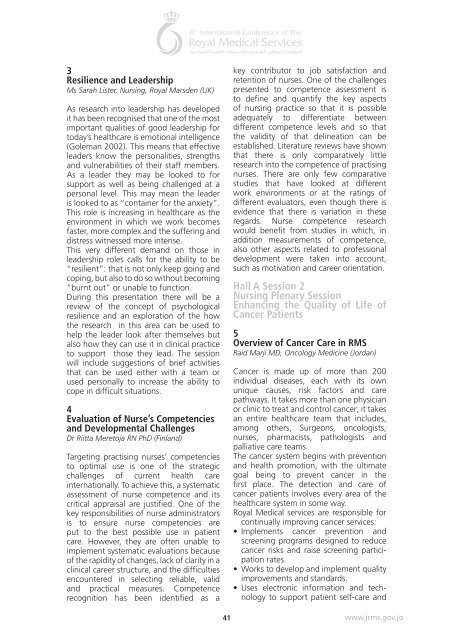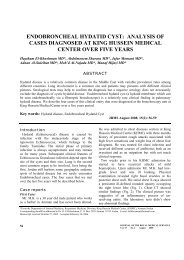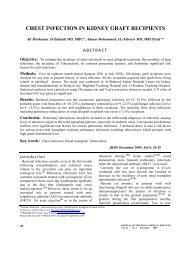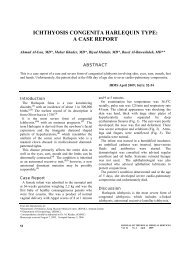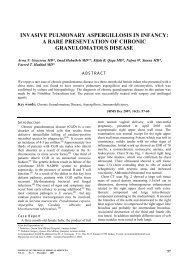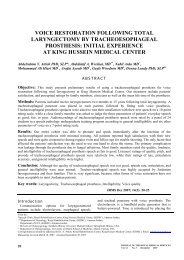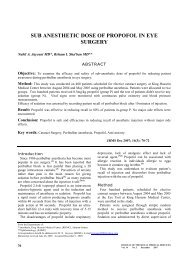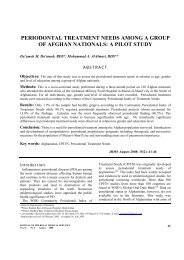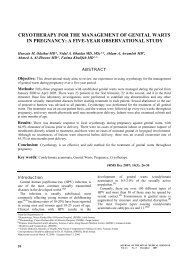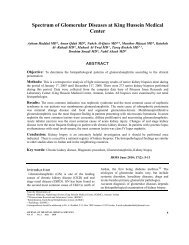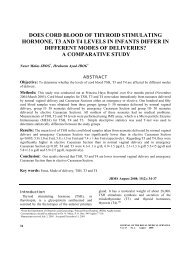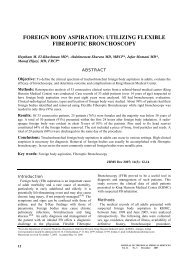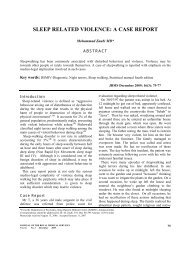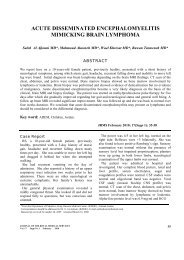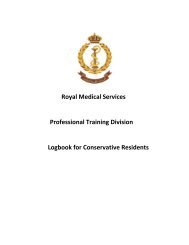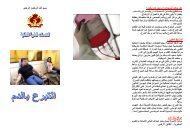Abstract book 6th RMS 16.indd
Abstract book 6th RMS 16.indd
Abstract book 6th RMS 16.indd
You also want an ePaper? Increase the reach of your titles
YUMPU automatically turns print PDFs into web optimized ePapers that Google loves.
3<br />
Resilience and Leadership<br />
Ms Sarah Lister, Nursing, Royal Marsden (UK)<br />
As research into leadership has developed<br />
it has been recognised that one of the most<br />
important qualities of good leadership for<br />
today’s healthcare is emotional intelligence<br />
(Goleman 2002). This means that effective<br />
leaders know the personalities, strengths<br />
and vulnerabilities of their staff members.<br />
As a leader they may be looked to for<br />
support as well as being challenged at a<br />
personal level. This may mean the leader<br />
is looked to as “container for the anxiety”.<br />
This role is increasing in healthcare as the<br />
environment in which we work becomes<br />
faster, more complex and the suffering and<br />
distress witnessed more intense.<br />
This very different demand on those in<br />
leadership roles calls for the ability to be<br />
“resilient”: that is not only keep going and<br />
coping, but also to do so without becoming<br />
“burnt out” or unable to function.<br />
During this presentation there will be a<br />
review of the concept of psychological<br />
resilience and an exploration of the how<br />
the research in this area can be used to<br />
help the leader look after themselves but<br />
also how they can use it in clinical practice<br />
to support those they lead. The session<br />
will include suggestions of brief activities<br />
that can be used either with a team or<br />
used personally to increase the ability to<br />
cope in difficult situations.<br />
4<br />
Evaluation of Nurse’s Competencies<br />
and Developmental Challenges<br />
Dr Riitta Meretoja RN PhD (Finland)<br />
Targeting practising nurses’ competencies<br />
to optimal use is one of the strategic<br />
challenges of current health care<br />
internationally. To achieve this, a systematic<br />
assessment of nurse competence and its<br />
critical appraisal are justified. One of the<br />
key responsibilities of nurse administrators<br />
is to ensure nurse competencies are<br />
put to the best possible use in patient<br />
care. However, they are often unable to<br />
implement systematic evaluations because<br />
of the rapidity of changes, lack of clarity in a<br />
clinical career structure, and the difficulties<br />
encountered in selecting reliable, valid<br />
and practical measures. Competence<br />
recognition has been identified as a<br />
key contributor to job satisfaction and<br />
retention of nurses. One of the challenges<br />
presented to competence assessment is<br />
to define and quantify the key aspects<br />
of nursing practice so that it is possible<br />
adequately to differentiate between<br />
different competence levels and so that<br />
the validity of that delineation can be<br />
established. Literature reviews have shown<br />
that there is only comparatively little<br />
research into the competence of practising<br />
nurses. There are only few comparative<br />
studies that have looked at different<br />
work environments or at the ratings of<br />
different evaluators, even though there is<br />
evidence that there is variation in these<br />
regards. Nurse competence research<br />
would benefit from studies in which, in<br />
addition measurements of competence,<br />
also other aspects related to professional<br />
development were taken into account,<br />
such as motivation and career orientation.<br />
Hall A Session 2<br />
Nursing Plenary Session<br />
Enhancing the Quality of Life of<br />
Cancer Patients<br />
5<br />
Overview of Cancer Care in <strong>RMS</strong><br />
Raid Marji MD, Oncology Medicine (Jordan)<br />
Cancer is made up of more than 200<br />
individual diseases, each with its own<br />
unique causes, risk factors and care<br />
pathways. It takes more than one physician<br />
or clinic to treat and control cancer; it takes<br />
an entire healthcare team that includes,<br />
among others, Surgeons, oncologists,<br />
nurses, pharmacists, pathologists and<br />
palliative care teams.<br />
The cancer system begins with prevention<br />
and health promotion, with the ultimate<br />
goal being to prevent cancer in the<br />
first place. The detection and care of<br />
cancer patients involves every area of the<br />
healthcare system in some way.<br />
Royal Medical services are responsible for<br />
continually improving cancer services:<br />
• Implements cancer prevention and<br />
screening programs designed to reduce<br />
cancer risks and raise screening participation<br />
rates.<br />
• Works to develop and implement quality<br />
improvements and standards.<br />
• Uses electronic information and technology<br />
to support patient self-care and<br />
41 www.jrms.gov.jo


